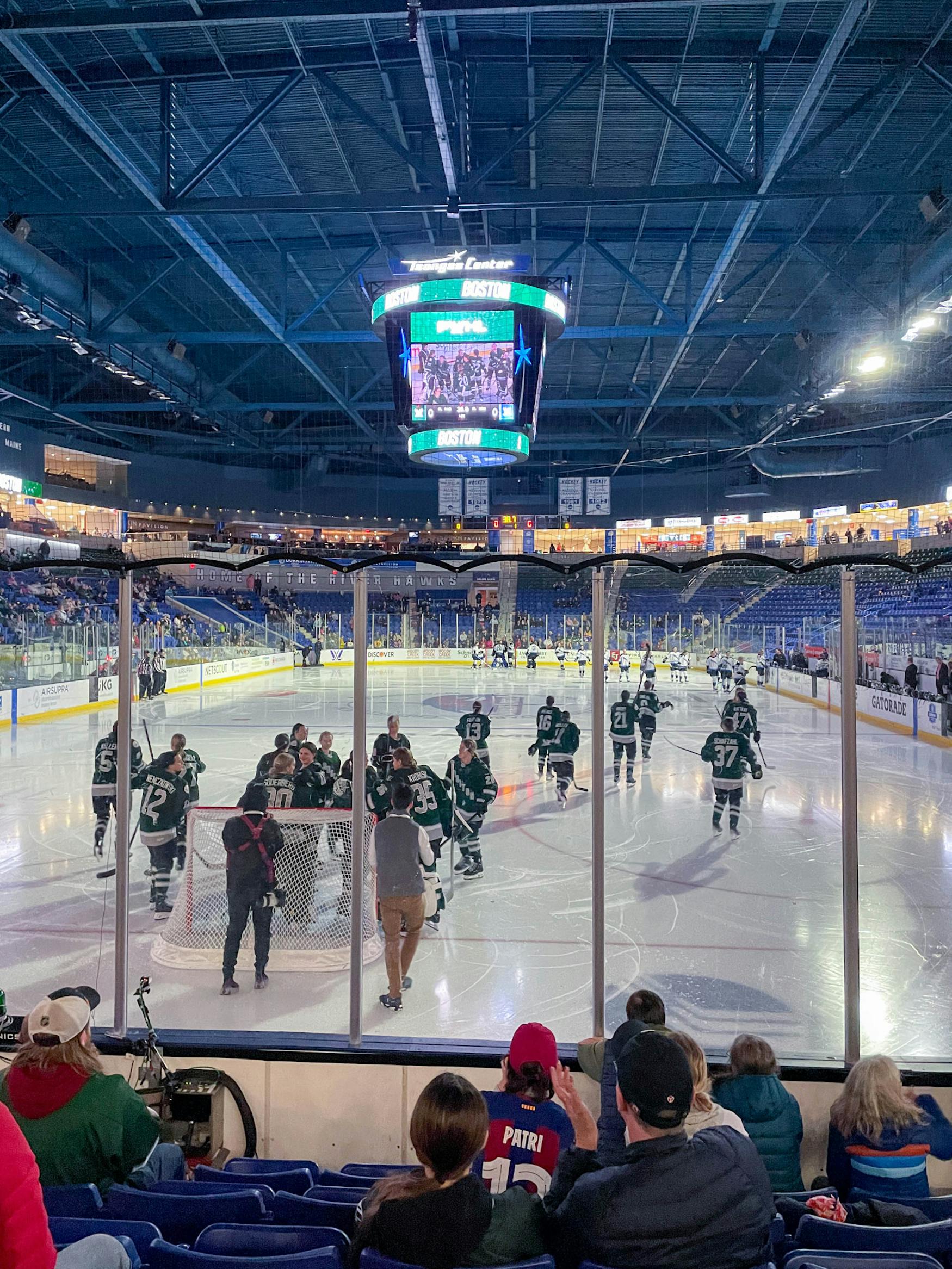Boston women’s professional hockey team has inaugural season
A new league of professional women’s hockey players has led the Boston PWHL team to find a home at UMass Lowell.
The seats of University of Massachusetts Amherst Lowell's Tsongas Center were filled with cheering girls' hockey teams and posters in support of Boston's new professional women's hockey league, Boston Professional Women’s Hockey League. Their heartwarming cheers and smiles touched my heart as I attended a Boston PWLH game on Feb. 14, 2024, against Toronto PWHL.
Women’s professional hockey in North America has evolved and grown over the past three decades, but this inaugural 2023-2024 season is now based in six cities — Montreal, Ottawa, Toronto, New York, Minnesota and Boston. According to CP24, a Canadian news outlet, the leagues that preceded the PWHL were the first National Women’s Hockey League (1999-2007), the Western Women’s Hockey League (2004-2011), the Canadian Women’s Hockey League (2007-2019) and the Premier Hockey Federation (2015-2023).
However, the PWHL shows promise that these prior leagues never had — this is in part due to the large investments from Mark Walter, controlling owner of the Los Angeles Dodgers, CEO of Guggenheim Partners and an investor in several other sports organizations. Walter’s investments have allowed salaries to start between $35,000 and $80,000 for players, which pales in comparison to National Hockey League counterparts, but it is a remarkable step for the league’s first season.
The six teams each have a 23-person active roster, and the puck dropped in January 2024 with playoffs or finals concluding in June, according to the PWHL website. A 15-round draft took place on Sept. 18, 2023, and the Board that governs the league boasts female sports legend Billie Jean King as well as other notable sports administrators and figures.
The PWHL “brings together the best players in the world,” and is paving the way for a sustainable future for professional women’s hockey. The pace of the game that I attended on February 14 was competitive and both the Boston and Toronto PWHL teams stayed physical throughout the matchup.
A Valentine’s Day game, the evening match at the Tsongas Center at UMass Lowell was competitive but the Toronto PWHL pulled away with a 4-2 win. Boston stayed physical throughout the entire matchup of three 20-minute periods and used the newly allowed checking under the PWHL to their advantage. Checking is not allowed in NCAA women’s hockey games, but this rule allows players to be more physically aggressive, something that puts the pace of PWHL games on par with NHL games.
Hilary Knight — a member of the US National Women’s Hockey team and a former member of the Boston Pride, a member of the PHF before it was dissolved — was a founding member of the Professional Women’s Hockey Player Association. The four-time Olympian and experienced defender was named a captain of the Boston PWHL team. Her leadership to help found the league has been built on top of the work of those who came before her. In a podcast with NBC Sports Boston, she commented that throughout this process she has maintained that “You have to be super confident that you are exactly where you are, at the exact time, and where you’re supposed to be.”
This confidence will certainly be needed as the PWHL sets out, and as building a fan base is no joke. The Tsongas Center appeared at around 40 percent capacity, and although the crowd was rousing, the PWHL’s fan base, support and viewership will be a testament to how they fare in the future.
While some critics may say there is a difference in ability or technical skill between genders, and that contributes to a lack of viewers and fans, I would attribute that to the age of this league and its players. The NHL has extensive training and recruitment through its extensive minor leagues that have been set up since its founding in 1917. It is unfair to assume that a new women’s professional hockey league, picking up pieces of its failed former counterparts, will be a replica of the NHL.
Instead, I think that the PWHL is creating a new narrative and a new sustainable economic model that will pave the way for generations of female hockey players to come. I think that their motto,“Ice Time. Earned.,” is a powerful one that will push these young girls’ hockey players to earn their time on the ice as well.



Please note All comments are eligible for publication in The Justice.